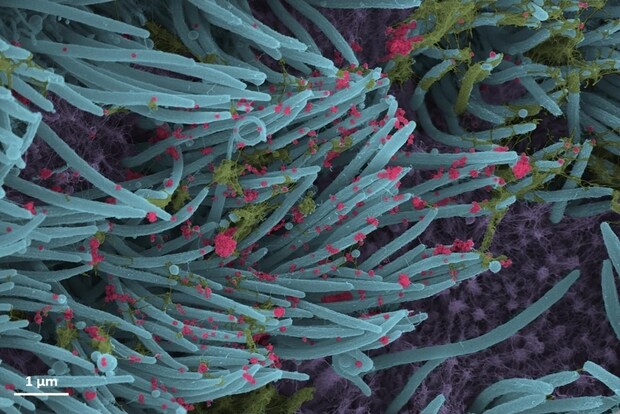The study, published in the journal ‘Proceedings of the National Academy of Sciences, uses artificial intelligence-powered image analysis of human cell lines during infection with the novel coronavirus.
A new study has revealed that several drug contenders already in use for other purposes — including one dietary supplement — have been shown to block or reduce the SARS-CoV2 infection in cells.
The study, published in the journal ‘Proceedings of the National Academy of Sciences, uses artificial intelligence-powered image analysis of human cell lines during infection with the novel coronavirus.
“Traditionally, the drug development process takes a decade — and we just don’t have a decade,” said researcher Jonathan Sexton from the University of Michigan.
“The therapies we discovered are well-positioned for phase 2 clinical trials because their safety has already been established,” Sexton added.
The team said that the cells were treated with more than 1,400 individual FDA-approved drugs and compounds, either before or after viral infection, and screened, resulting in 17 potential hits.
Ten of those hits were newly recognized, with seven identified in previous drug repurposing studies, including Remdesivir, which is one of the few FDA-approved therapies for Covid-19 for hospitalized patients.
The team validated the 17 candidate compounds in several types of cells, including stem-cell-derived human lung cells, to mimic SARS-CoV2 infection of the respiratory tract.
Nine showed anti-viral activity at reasonable doses, including lactoferrin, a protein found in human breastmilk that is also available over the counter as a dietary supplement derived from cow’s milk.
“We found lactoferrin had remarkable efficacy for preventing infection, working better than anything else we observed,” Sexton said, adding that early data suggest this efficacy extends even to newer variants of SARS-CoV2, including the highly transmissible Delta variant.
The team said it is soon launching clinical trials of the compound to examine its ability to reduce viral loads and inflammation in patients with SARS-CoV2 infection.























